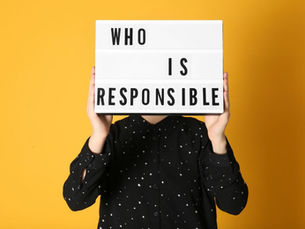top of page
Insights and Resources for Your Mental Health Journey
Welcome to my blog, where I share valuable insights, tips, and resources to support your mental health and well-being. From managing stress and anxiety to building stronger relationships, my articles are designed to empower you with the knowledge and tools you need to live a fulfilling, balanced life.
Explore my latest posts and take a step toward positive change today.
Disclaimer: The information provided on this blog is for general educational and informational purposes only. The information on this blog is not meant or implied to be a substitute for professional mental health treatment or any other professional advice.
Authentic Living Therapy
Serving California from San Jose


Anger, Blame, and the Illusion of Power: How to Move from Control to Agency in Conflict
When conflict happens, most people do not simply react to the event itself. They react to what the event means. A partner withdraws mid-conversation. A friend cancels plans again. The surface behavior is often brief. But the interpretation lands quickly and deeply. The nervous system activates before conscious thought catches up. Anger rises. Moral clarity feels urgent. The body wants resolution, not eventually, but immediately. Something feels wrong, and the instinct is to c
Stacey Alvarez
2 days ago24 min read


When Absence Is Power: How Structural Neglect Functions as Coercive Control
Neglect is often understood as a failure to act rather than a way of acting. In everyday thinking, harm is associated with what someone does: the words they say, the aggression they show, the behaviors they choose. By contrast, neglect is assumed to be passive; an unfortunate absence of care, attention, or follow-through rather than a meaningful relational behavior. From this view, “doing nothing” is treated as morally neutral, and sometimes even preferable to conflict or con
Stacey Alvarez
Feb 929 min read


Trapped by a Trauma Bond? How to Identify, Understand, and Heal
Have you ever felt trapped in a relationship that’s deeply painful or confusing; one that you can’t seem to leave no matter how much you want to? Perhaps you find yourself constantly forgiving, hoping things will change, or feeling intensely loyal even when the relationship hurts you. This experience often points to what’s known as a trauma bond; a powerful, complex emotional connection formed through cycles of abuse, manipulation, or extreme highs and lows.
Stacey Alvarez
Feb 227 min read


Seasonal Irritability: Why People Become More Critical at Certain Times of Year
Many people notice the same unsettling pattern year after year: during certain seasons, they feel more scrutinized, corrected, or quietly picked apart. Comments that might have passed unnoticed months earlier suddenly land as judgments. Small differences become points of tension. Ordinary human behavior feels increasingly monitored, evaluated, or framed as a problem that needs fixing.
Stacey Alvarez
Jan 2627 min read


Disengagement Is Communication: Boundaries, Consent, and the Urge to Keep Talking
Disengagement is not the absence of communication. It is a form of communication. It communicates limits, capacity, and consent. It signals that the current conditions of engagement are not safe, productive, or mutual. In many relational contexts, especially those involving coercion, entitlement, or chronic boundary violation, disengagement is the clearest and most ethical message available.
Stacey Alvarez
Jan 1932 min read


Autism and Emotional Intolerance: Why Avoidance Isn’t What It Looks Like
Autistic individuals often experience the world in ways that are more intense and nuanced, emotionally, sensorily, and socially. While conversations frequently focus on visible behaviors like meltdowns or shutdowns, there’s a deeper, often overlooked core experience that underlies many of these reactions: emotional intolerance.
Stacey Alvarez
Jan 149 min read


Are Parents Always Responsible for Narcissistic Adult Children or Family Estrangement?
Public conversations about children and outcomes tend to circle one urgent question: Who failed? Was it the parents? The schools? Society? The child themselves? This demand for attribution is rarely neutral. It carries an implicit need to assign responsibility, locate fault, and restore a sense of order in the face of discomfort. Ambiguity feels intolerable, so the conversation narrows until someone can be blamed or absolved.
Stacey Alvarez
Jan 539 min read


Why We Seek Psychological Certainty After Violence—and Why It Doesn’t Keep Us Safe
In the immediate aftermath of violence, the human nervous system is thrown into shock. Fear surges, orientation collapses, and the world no longer feels predictable or safe. Even those far removed from the event can feel destabilized—hyperfocused, restless, or emotionally flooded—as the mind scrambles to regain a sense of order. Violence does more than harm bodies; it ruptures our assumptions about how the world works and who is safe within it.
Stacey Alvarez
Dec 29, 202527 min read


The Siblings Who Disappear: Growing Up with an Addicted Sibling
Addiction does not exist in isolation. When one child struggles with substance use, it often becomes a gravitational force within the family, pulling time, attention, emotional energy, and decision-making into a single orbit. The family system reorganizes itself around crisis: preventing the next relapse, managing the next emergency, bracing for the next disruption. What begins as concern slowly becomes the organizing principle of daily life.
Stacey Alvarez
Dec 22, 202531 min read


Assertive, Not Aggressive: Understanding the Difference and Why It Matters
In many social and professional settings, assertiveness—the ability to express your thoughts, needs, and boundaries confidently—can be misinterpreted as aggression, especially if others are uncomfortable with direct communication. Many people struggle with being assertive because they don’t want to make others uncomfortable. But here’s the truth: Other people’s discomfort with directness is not a reason for you to shrink yourself.
Stacey Alvarez
Dec 14, 202516 min read


The Armor of Moral Superiority: Protecting Pain, Avoiding Healing
At first glance, moral superiority can feel empowering, providing a clear sense of identity, purpose, and justice in a world full of complexity and moral ambiguity. Yet, beneath this apparent strength, moral superiority often functions as a protective shield, a defense mechanism that masks unresolved pain, insecurity, and inner conflict. This defensive posture can prevent authentic self-reflection and healing by externalizing fault and avoiding responsibility.
Stacey Alvarez
Dec 8, 202524 min read


When Appeasing Aggression Hurts: Understanding Toxic Family Dynamics
Families often develop unspoken rules about whose emotions get prioritized, and a common pattern is centering the emotional comfort of those who are aggressive or passive-aggressive. In these systems, the person who raises their voice, slams doors, makes cutting remarks, or withdraws in icy silence often dictates the emotional climate. Everyone else learns, sometimes unconsciously, that keeping this person calm matters more than tending to their own fear, sadness, or longing
Stacey Alvarez
Dec 1, 202519 min read


Why Anxious Attachment Can Lead to Toxic and Abusive Relationships
When you live with anxious attachment, relationships often don’t feel safe—they feel urgent. Your nervous system is constantly on alert, scanning for signs of disconnection, withdrawal, or abandonment. Love becomes something to secure, manage, or rescue. The fear of being left or replaced can be so overwhelming that even healthy space or silence feels threatening. These very vulnerabilities can become magnets for emotionally unavailable or abusive partners.
Stacey Alvarez
Nov 24, 202521 min read


Anger as a Normal Part of Healing, But Is It Okay to Stay There?
Anger is often treated as a “negative” emotion, something to suppress, control, or feel ashamed of. Yet for many survivors of trauma, abuse, or relational betrayal, anger is not only natural but also an essential and normal part of the healing process. Society frequently tells us that anger is dangerous, inappropriate, or a sign of weakness.
Stacey Alvarez
Nov 17, 202521 min read


Supporting Sobriety: The Critical Role of Mentorship, Coaching, and Work
The path to recovery is often nonlinear, marked by periods of progress and setbacks. While detoxification and clinical treatment address the physiological and psychological aspects of addiction, they represent only the beginning of a lifelong process. The deeper work of rebuilding a life, restoring purpose, reconnecting with community, and creating stability, often begins after treatment ends.
Stacey Alvarez
Nov 10, 202523 min read


The Risks of Relying on AI for Therapy and Why Human Connection Still Matters
The rise of artificial intelligence is transforming nearly every industry, and mental health care is no exception. From therapy apps and chatbots to clinical tools that analyze patterns in speech and behavior, AI is making its way into how we understand and support emotional well-being. But as these technologies evolve, they raise an important question: Can AI truly play a role in therapy?
Stacey Alvarez
Nov 3, 202521 min read


Emotional Safety and Social Pressure: Why People Change Their Answers in Front of Others
What causes this jarring shift? Why would someone agree privately and then publicly deny or retract that agreement? The behavior isn’t always rooted in straightforward malice, manipulation, or bad intent. Often, it’s connected to more complex experiences like fear of judgment, shame, insecurity, a need to protect one’s identity, or struggles with power dynamics within the group.
Stacey Alvarez
Oct 28, 202527 min read


When Advice-Seeking Becomes People Pleasing
Advice-seeking is not inherently unhealthy, but it can become entangled with people-pleasing when it functions to escape self-trust, accountability, or the risk of conflict. Instead of supporting empowerment, advice-seeking in this form keeps a person dependent on others to determine what is right, acceptable, or safe. Over time, this pattern erodes confidence, reinforces external validation as the measure of worth, and blurs the line between collaboration and compliance.
Stacey Alvarez
Oct 20, 202523 min read


Letting Go Without Leaving: How to Support Others While Letting Natural Consequences Do the Teaching
We all want the best for the people we care about. When we see them making choices that might lead to hurt or failure, it’s natural to want to step in and protect them from pain. But overprotecting can sometimes unintentionally prevent important lessons and growth. Finding the right balance between offering support and allowing someone to face the natural consequences of their actions is one of the most challenging and valuable aspects of caring for others.
Stacey Alvarez
Sep 27, 202515 min read


Caring Without Carrying: Why Emotional Detachment Can Be Necessary
Emotional detachment is often misunderstood, misrepresented, and sometimes vilified. At its core, emotional detachment is the conscious choice to create distance from the overwhelming emotional experiences of others, not as a form of rejection, but as a protective, boundary-setting tool. It is not about shutting down your heart, numbing your feelings, or turning off compassion. Rather, it is about maintaining clarity, preserving your well-being, and refusing to be consumed by
Stacey Alvarez
Sep 27, 202531 min read
bottom of page
